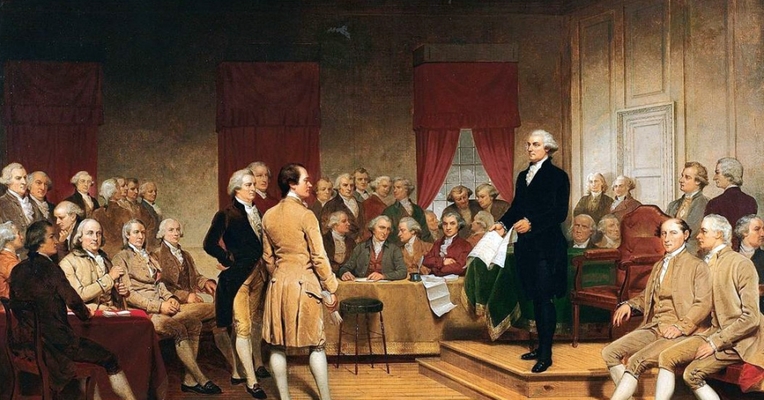GEORGE MASON
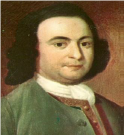
“...It would be improper to require the consent of the National Legislature, because they may abuse their power, and refuse consent…” -George Mason (from James Madison’s notes of the debates in the Constitutional Convention, June 11, 1787)
“...Col (George) Mason thought the plan of amending the Constitution exceptionable and dangerous. As the proposing of amendments is in both the modes to depend, in the first immediately, in the second, ultimately, on Congress, no amendments of the proper kind would ever be obtained by the people, if the Government should become oppressive, as he verily believed would be the case...” -George Mason (from James Madison’s notes of the debates in the Constitutional Convention, September 15, 1787)
____________________________________________________
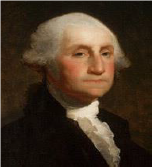
GEORGE WASHINGTON
“...The warmest friends and the best supporters the Constitution has, do not contend that it is free from imperfections; but they found them unavoidable, and are sensible, if evil is likely to arise therefrom, [that] the remedy must come hereafter; for in the present moment it is not to be obtained. And as there is a constitutional door open for it, I think the people (for it is with them to judge) can, as they will have the advantage of experience on their side, decide with as much propriety on the alterations and amendments which are necessary [as] ourselves. I do not think we are more inspired, have more wisdom, or possess more virtue than those who will come after us...” -George Washington (from his letter to Bushrod Washington, eventual Associate Justice of the Supreme Court, November 9, 1787)
“...It should be remembered that a constitutional door is open for such amendments as shall be thought necessary by nine(two thirds of the) states...” -George Washington (from his letter to John Armstrong, April 25, 1788)
“...If, in the opinion of the people, the distribution or modification of constitutional powers be in any particular wrong, let it be corrected by an amendment in the way in which the Constitution designates.” -George Washington (from his farewell address, originally published September 17, 1796)
____________________________________________________
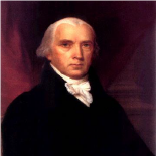
JAMES MADISON
“...It, moreover, equally enables the general and the State governments to originate the amendment of errors, as they may be pointed out by experience on one side, or on the other...” -James Madison (from Federalist 43 of The Federalist Papers, January 23, 1788)
“….an ulterior resort is provided in amendments attainable by an intervention of the States, which may better adapt the Constitution for the purposes of its creation…” -James Madison (from his letter to Martin L. Hurlbut, May 1, 1830)
“...Should the provisions of the Constitution as here reviewed, be found not to secure government and rights of the states, against usurpations and abuses on the part of the United States, the final resort within the purview of the Constitution, lies in an amendment of the Constitution, according to a process applicable by the states...” -James Madison (from his letter to Edward Everett, Aug 28, 1830)
____________________________________________________
ALEXANDER HAMILTON
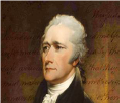
“...the national rulers, whenever nine states concur, will have no option upon the subject. By the fifth Article of the plan, the Congress will be obliged 'on the application of the legislatures of two thirds of the states [which at present amount to nine] to call a convention for proposing amendments, which shall be valid to all intents and purposes…' The words of this article are peremptory. The Congress 'shall call a convention.' Nothing in this particular is left to the discretion of that body...We may safely rely on the disposition of the state legislatures to erect barriers against the encroachments of the national authority...” -Alexander Hamilton (from Federalist 85, the last of The Federalist Papers, August 13 - 16, 1788)
____________________________________________________
THOMAS JEFFERSON
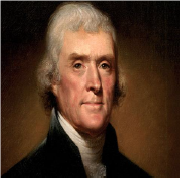 “...The ultimate arbiter is the people of the Union, assembled by their deputies in convention, at the call of Congress, or of two-thirds of the States. Let them decide to which they mean to give an authority claimed by two of their organs. And it has been the peculiar wisdom and felicity of our constitution, to have provided this peaceable appeal, where that of other nations is at once to force...” -Thomas Jefferson (from his letter to Justice William Johnson, June 12, 1823)
“...The ultimate arbiter is the people of the Union, assembled by their deputies in convention, at the call of Congress, or of two-thirds of the States. Let them decide to which they mean to give an authority claimed by two of their organs. And it has been the peculiar wisdom and felicity of our constitution, to have provided this peaceable appeal, where that of other nations is at once to force...” -Thomas Jefferson (from his letter to Justice William Johnson, June 12, 1823)
____________________________________________________
ABRAHAM LINCOLN
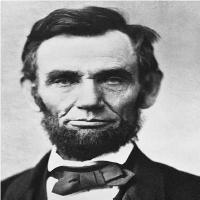 “...This country, with its institutions, belongs to the people who inhabit it. Whenever they shall grow weary of the existing Government, they can exercise their constitutional right of amending it...While I make no recommendation of amendments, I fully recognize the rightful authority of the people over the whole subject, to be exercised in either of the modes prescribed in the instrument itself; and I should, under existing circumstances, favor rather than oppose a fair opportunity being afforded the people to act upon it. I will venture to add that to me the convention mode seems preferable, in that it allows amendments to originate with the people themselves, instead of only permitting them to take or reject propositions originated by others, not especially chosen for the purpose, and which might not be precisely such as they would wish to either accept or refuse…” -Abraham Lincoln (from his first inaugural address, March 4, 1861)
“...This country, with its institutions, belongs to the people who inhabit it. Whenever they shall grow weary of the existing Government, they can exercise their constitutional right of amending it...While I make no recommendation of amendments, I fully recognize the rightful authority of the people over the whole subject, to be exercised in either of the modes prescribed in the instrument itself; and I should, under existing circumstances, favor rather than oppose a fair opportunity being afforded the people to act upon it. I will venture to add that to me the convention mode seems preferable, in that it allows amendments to originate with the people themselves, instead of only permitting them to take or reject propositions originated by others, not especially chosen for the purpose, and which might not be precisely such as they would wish to either accept or refuse…” -Abraham Lincoln (from his first inaugural address, March 4, 1861)
____________________________________________________
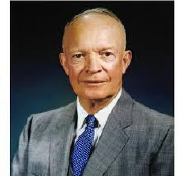 DWIGHT EISENHOWER
DWIGHT EISENHOWER
“...Through their state legislatures and without regard to the federal government, the people can demand a convention to propose amendments that can and will reverse any trends they see as fatal to true representative government...” -Dwight Eisenhower (from his commencement address at Defiance College, Ohio, May, 26, 1963)
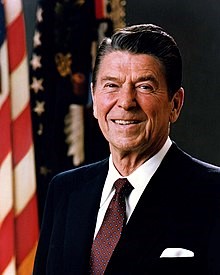
____________________________________________________
RONALD REAGAN
“...The Constitution provides for both methods and the Convention is a safety valve giving the people a chance to act if Congress refuses to...” -Then California Governor Ronald Reagan (In his radio address on February 13, 1979)

